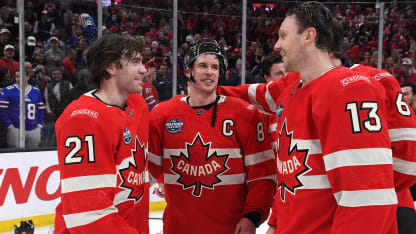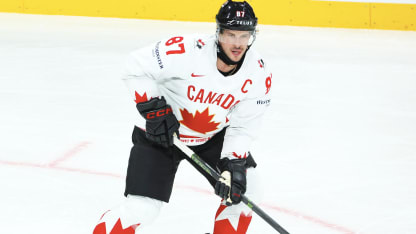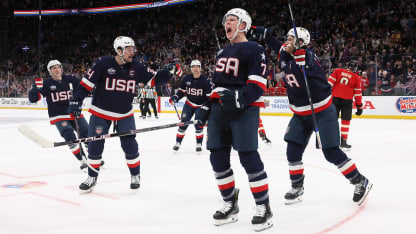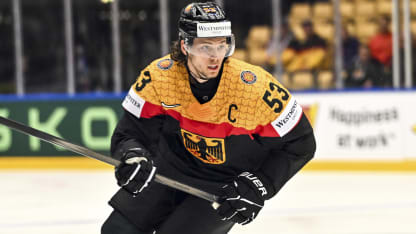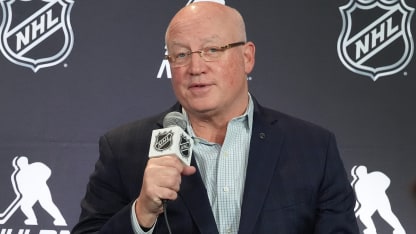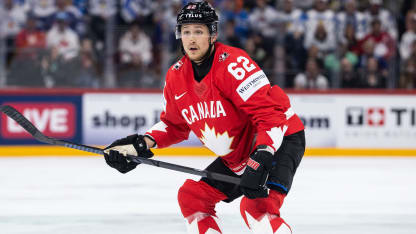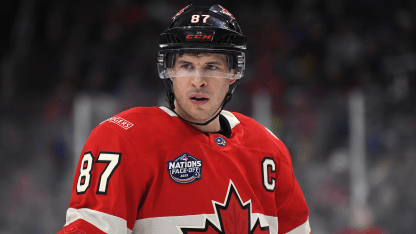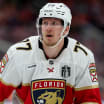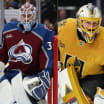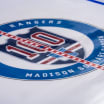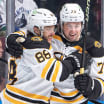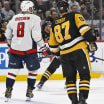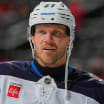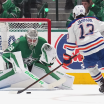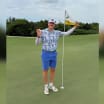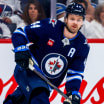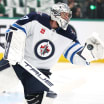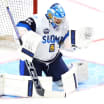Doughty said he looked around the dressing room on Day 1 at the 4 Nations and recognized that Sidney Crosby was the only player in there that he had previously competed with. They won together at the Olympics in 2010 and 2014, and the World Cup of Hockey in 2016.
It was strange.
Nathan MacKinnon remembered being "jittery" the first practice at the 4 Nations because everything was new and different.
He didn't know coach Jon Cooper's systems well. The terminology was different. He didn't know some of the drills. Even the ones he knew had different names, leading to some confusion. He was fearful of messing up.
Players were unsure where they fit, some even questioned if they belonged.
The uncertainty is gone, replaced by camaraderie and belief.
"Belief, that's a big one. The belief in our group," forward Mitch Marner said. "When we got to the 4 Nations everything was quick. We had the two days to learn everything. Right before we had a couple zoom calls just to go through stuff. We had stuff we had to study about what we're going to do and how we're going to play. It was really quick. Now it's nice. You know what you're going to play like. You know what's going to happen. You got a sense of the coaching staff from the 4 Nations. You know you can walk up to them and talk to them about everything. It'll be nice just to have that as soon as we get into Italy, having everything ready to go and ready to rock and roll knowing what we're going to do."
MacKinnon said, "Even having a beer at the 4 Nations with all those guys compared to now, it's night and day how comfortable you are now."
Before the 4 Nations there might have been some trepidation, wondering if they would have each other's backs with NHL rivals playing with each other. After all, other than Crosby and Doughty, none of Canada's players had experienced a true best-on-best competition before this.
If they were wondering, their fears were put to rest in the first nine seconds of the first U.S.-Canada game, when Brandon Hagel fought Matthew Tkachuk, Sam Bennett fought Brady Tkachuk and Colton Parayko fought J.T. Miller.
That didn't carry into a win that night, but it did carry over for the rest of the tournament and into orientation camp.
"It's a big setting that I think we all can process and use moving forward into the Olympic Games, which is obviously a bigger presence on its own," goalie Jordan Binnington said. "I think the whole experience, all the details of it, and the camaraderie as a group, using the experience of the time we had, enjoying the win, enjoying the compete and battle, standing up for each other in that U.S.-Canada game, that carries over into knowing the guy beside you is in it with you."
With the blueprint in place and proven to be successful it makes sense for Canada to use it again to try to win gold in Italy.
But being comfortable with the original plans and thinking they'll be good enough in the Olympics, where the field triples to 12 teams and the weight of a nation grows, is a mistake the Canadians are actively working to avoid making.
"We're going to pick the best team at that time with the understanding that experience does play a part of it," general manager Doug Armstrong said.
So, yes, it's fair to assume the 24 players from the 4 Nations roster will comprise most of Canada's 25-man roster for the Olympics, but Cooper and Armstrong were clear in their stance that nothing is guaranteed beyond the original six players selected -- McDavid, Point, MacKinnon, Crosby, Sam Reinhart and Cale Makar.
That's why Canada invited 42 players to its Orientation Camp, with Hill and forward Bo Horvat unable to attend. It's why they wanted to make sure every single one of them understood his place and that he had as good a chance as the next guy.
It's why there are another 50 players eligible to be selected for the Olympic team on a watch list. They will be scouted. Some of them have a chance too.
"When the Ferrari got invented, did they stop making the Ferrari or did they improve the model?" Cooper said. "That's what we're in charge of doing, improving the Ferrari."
